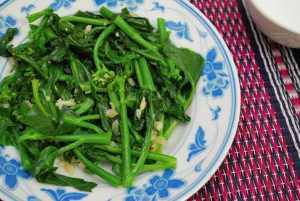 There is much debate over the benefits of fasting.
There is much debate over the benefits of fasting.
With over twenty years of fasting, I have learned some important tips. I have experienced many fasts ranging from a 24 hour water fast, a ten day juice fast, and a combination of water fasting, juice and green smoothies.
In my opinion it is not necessary to do extreme fasting to experience great health benefits. A moderate fast for most people can make a huge difference in their health.
Why fast?
Fasting allows the body to rest and detoxify.
As soon as the body goes into caloric restriction (i.e. it has digested it’s last meal and is now hungry) it goes into a cleansing process to clean and eliminate toxins. As the fast progresses, the body goes into deep cleaning mode eliminating toxins that are stored in fat, bacteria, viruses, and waste products in the blood.
In fact, many indigenous cultures have used fasting as a means of healing for thousands of years.
When the body is not in a fasting state, it uses glucose (sugar) that has been broken down from food to make energy. This glucose energy is completely exhausted within the first 24 hours of fasting. After 24 hours the body shifts to ketosis, which means the body begins to burn essential fatty acids, found in fat, as fuel. This shift generally begins on the second day of fasting, and is in full function by the third day. Because ketosis is not fully functioning on the second day, the body consumes a small amount of muscle protein. (On average about 2 – 3 ounces of muscle tissue). By the third day, however, ketosis is sufficient to provide nearly all the energy that the body requires, and the body conserves and protects most of its’ protein.
From the third day the breakdown of fatty acids from fat continues to increase, hitting its’ peak on the tenth day.
Days 4 – 10 when the body has completely shifted to ketosis, is when the maximum breakdown of fatty tissue occurs. The body also begins to seek out non-body proteins for consumption, like bacteria, viruses, fibroid tumors, and any other compounds in the body that could be used as fuel.
The body’s entire focus becomes the removal of toxins and the regeneration of damaged tissue.
For most people extreme fasting, longer than 3 days is unnecessary. A moderate fast, however, would benefit everyone. The best time of the year for a longer fast is in March or April. January is a great time for a short fast, and a week of clean eating just to clean up and reset things after the holidays.
As a reminder, everyone should work with a health care provider when fasting. Never stop taking prescription medications when fasting.
The best way to fast
If you are generally healthy and new to fasting:
Day 1: 24 hour water fast.
Use the purest water available or distilled water. Consume at least 8 – 16 cups of water each day.
Day 2 – 7: Eat a clean diet.
No sugar, no alcohol, no coffee or black tea, no dairy products, no gluten – (which include wheat products, spelt, barley, kamut, or rye), no soy products other than tempeh, no corn, no potatoes, no pork, no beef, and no seafood in a shell.
WHAT YOU CAN EAT: (Everything you consume should be organic if possible.)
Proteins:
- Chicken
- Organic Eggs
- Fish
- Turkey
- Tempeh (If you are vegetarian)
Vegetables: (Steam or juice vegetables.)
- Asparagus
- Broccoli
- Carrot
- Cauliflower
- Celery
- Chard
- Collard Greens
- Cucumber
- Garlic
- Green Beans
- Lettuce
- Onion
- Peas (Green)
- Spinach
Fruit: (Only fruits low in sugar)
- Avocado
- Kiwi
- Green Apples
If you are healthy and have experienced fasting, you may want a more aggressive plan: With this more aggressive fast, please call us at 503-282-5666 so that we can over see your care while you are fasting.
Day 1 – 3: Water Fasting. (You could also do a 24 hour water fast followed by a 24 – 48 juice fast. Choose from the above vegetables and fruits.)
Day 4 – 10: Clean diet from foods listed above.
The first couple of days of fasting is very challenging.
You will feel hungry and you may have detox symptoms like headaches, fatigue, and irritability. By the third day most people start to feel better. Magnesium can help with these symptoms and will not interrupt your fast. Ideally, stay at home the days you are fasting. If that is not possible, decrease your work schedule, and try to schedule a nap.
Facebook Comments